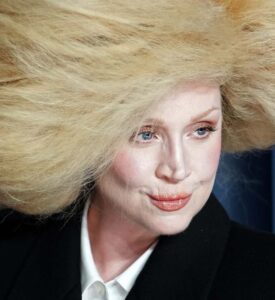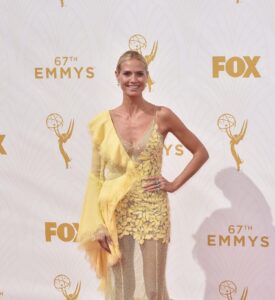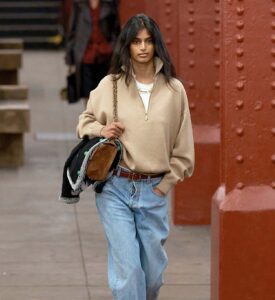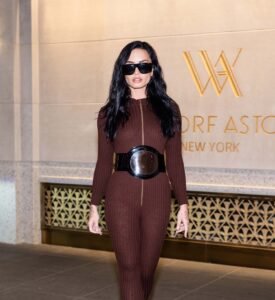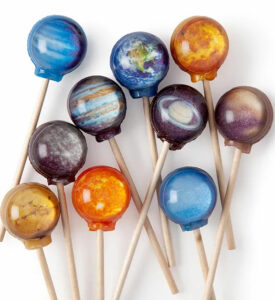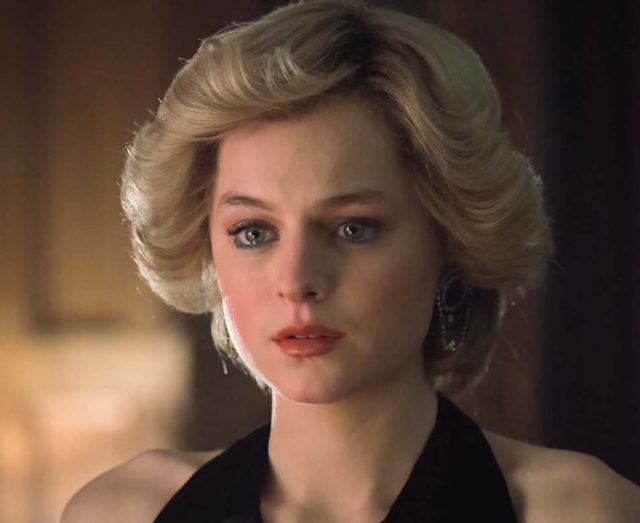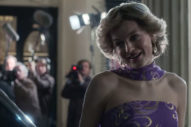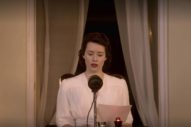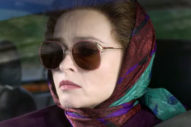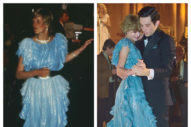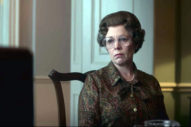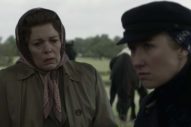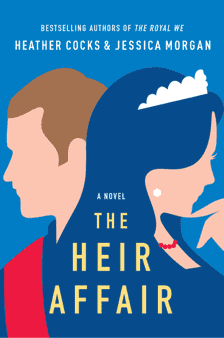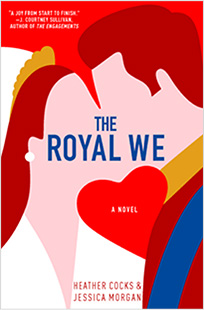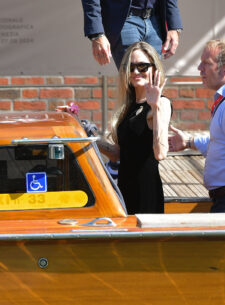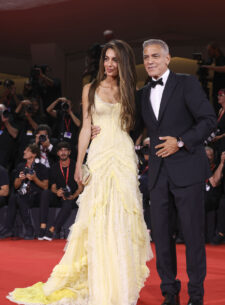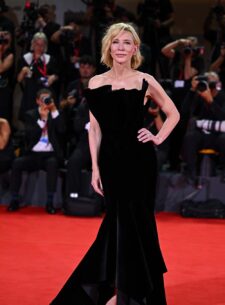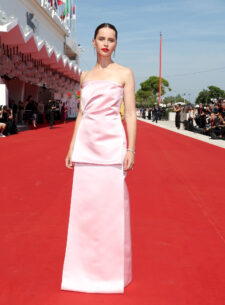Last week’s episode was pretty good, and I don’t think it’s a coincidence that its focus was entirely on the family drama. Accordingly, so were the best parts of this one. There was yelling! And spitefulness! And foot-stomping, and misguided attempts at advice! We’re getting to the years where the family context is key and some REALLY big personalities — and interpersonal dynamics — have some REALLY big impacts on how Elizabeth views The Firm vs The Family, and how private lives should take a backseat to public image. It is time for THE JUICE. But we’re gonna have to wait a bit longer for it.
This episode vaults us to a combination of 1989 and late 1990, and opens with an old white dude we haven’t seen much of before, because of course. Business as usual on this show. This time, it’s Geoffrey Howe, who was removed as foreign secretary in 1989 over economic stuff I CANNOT wrap my head around, but it has to do with the currency exchange unions that in part later led to the adoption of the Euro. He disapproved of Maggie’s attitude and policies where Europe was concerned, and so on Nov. 13, 1990, he shuffled into the House of Parliament and delivered a speech that smelted the Iron Lady. It’s way too complex for the show or me to explain, but ultimately he felt silenced and sidelined, and so delivered a scathing public indictment that included this quote which The Crown uses verbatim: “It is rather like sending your opening batsmen to the crease, only for them to find, as the first balls are being bowled, that their bats have been broken before the game by the team captain.” Wikipedia says he espoused “moderate whiggery,” and I know that’s just a political description, but I want to start using it to mean… anything. “That is some MAJOR immoderate whiggery right there.”
(In an unintentionally meta moment for the show, Charles is in the middle of a personal conversation with Elizabeth while this is happening, and Philip barges in and turns on the TV and basically says, “SHUSH WITH YOUR PERSONAL SHIT, IT’S THATCHER!!!”)
Anyway, Thatcher holds it together, barely, until she can get through Number 10 and up into her bedroom, where she closes the door and cries. Gillian Anderson moves like she’s 85 the whole time. Then she puts on her iron face for her meeting with the Queen to discuss the crisis… in the Gulf. Elizabeth is like, “THAT’S the crisis you’re worried about?” and asks plainly whether Maggie expects Howe’s remarks to result in a leadership challenge. Later, she and Philip gossip about the skullduggery — it was seen as a real shiv up the nasal canal — which is intercut with Thatcher’s answer (which is, essentially, “Oh, it’s just petty silliness, we shall dispatch it posthaste”), and leads to Olivia Colman doing a deliciously dismissive imitation of Thatcher. In my head, Colman would go home at night and do an even juicier one for her husband.
Howe in real life claims he only meant to try and constrain Thatcher’s Cabinet from any further shifts in their policies, but it does indeed lead to Maggie losing a vote of confidence, and all her allies are waffling because they sense the tide has already turned. Leadership Challenge Achievement: Unlocked. A betrayed Maggie takes one more stab at this, bragging to Elizabeth that all the international leaders think booting Thatcher would be an outrage and a catastrophe with the Gulf War looming. So she wants to dissolve Parliament, presumably to head off a leadership change by sending them into a General Election (someone smarter than I will have to explain why that isn’t also precarious, given that she could lose that too). The PM has the power to ask for that, though it must be done by royal proclamation — so essentially, Thatcher is asking the Queen to be the one person left in her corner. But Elizabeth wonders if simply having a power is not a good enough reason to use it. “Power is nothing without authority,” she says, pointing out that Thatcher essentially has no allies left and the public doesn’t seem to be in her corner either (the unspoken: “So why should I be?”). Maggie’s eyes well up; she knows she’s lost. But she points out that it’s all very well and good for the Queen to say that when she has power in doing nothing, whereas without power, Thatcher will have nothing. “There is no dignity in the wilderness,” she laments. “This job is my only true passion, and to have it taken from me, stolen from me so cruelly… what hurts the most is that we had come so far, and now to have the opportunity to finish the job snatched away at the very last…” Oh, Margaret, you are not owed power. You have to keep earning it.
So Thatcher resigns. (Five days later, the party elected John Major as its leader, and thus the P.M.) Elizabeth immediately summons Thatcher to the fancy audience room and attempts empathy. She notes that people have lazily focused too much on what their differences are — “people” that The Crown has claimed include Elizabeth, and there’s a very light element of Colman’s performance that suggests she too is adding herself to the mix — and not enough on their similarities: that they both came to power amid a sea of old pompous, bossy, patronizing male windbags and had to make their own way, via work ethic and duty and devotion to the country. She then hands Maggie an Order of Merit, one which is given at the sovereign’s personal discretion to someone of any background who has accomplished big things. “Nobody can deny this is a very different country than the one inherited by our very first woman Prime Minister,” she says, and pins the medals onto Thatcher herself, while Maggie’s lip trembles. She seems overcome. I THINK it’s gratitude and emotion, not nausea? Hard to tell. Wordlessly, Thatcher turns and leaves with the halting gait of a 90-year old who is ignoring doctor’s orders to use a walker. (In fact, she was 64. It’s crazy how much Scully ages Thatcher. Perhaps aliens are to blame.) And just like that, our long national nightmare is over.
Chuck and Di Hate Each Other, Part Infinity
We couldn’t get all the way to the divorce, because that’s in the mid-90s, and there is a lot of public mud-slinging that’s got to happen first. I’m sure that’s the bulk of season 5. So our momentum comes to a slight halt here, as there’s not a ton of places this story can go that doesn’t feel like an emotional retread from last week, BUT we get some good asshattery in the bargain, so.
My personal feeling is that Diana was not nearly so meek as she’s written here. We have gotten flashes of her backbone and temper, but there’s always an undercurrent of obedience that I don’t fully believe — it’s like she’s rising up and getting smacked down in the same ways, without an acknowledgement of how feisty she could be and how savvy she was. For example: The show also here covers Diana’s 1989 trip to New York, which it presents as her first solo tour despite the fact that I believe she’d traveled to the Middle East alone by this point. She’s portrayed as being a nervous wreck, positive she will fall flat on her face, compounded by Charles’s cold lack of support for her going — the conversation about what she’ll do and where, between his office and hers, is staged like a divorce arbitration. Then, she looks dazed and blank everywhere she goes, which was a performance and script choice that doesn’t line up with what a screaming success the trip was. In actual fact, there’s no way Diana was ignorant of her effect on people by this time or of how to work that to both her own advantage and the advantage of the causes she supported. (In the Australia episode, even, Elizabeth made Diana acknowledge her awareness of “playing to the galleries.”) She was extremely self-aware about image, refusing to wear hats at hospital visits — “You can’t cuddle a child in a hat” — and eschewing gloves because she felt people needed human touch. And on this 1989 trip, Diana did, as depicted, hug a child in an AIDS ward, and it was not her first time: In 1987, she famously shook hands with an AIDS patient in the U.K., in one image doing enormous work to dispel the myth that you can’t touch people with the disease. Now, I appreciate needing to compress or condense some events to make the same basic statement. You can’t include everything verbatim. BUT, my overall note is, I think it’s doing Diana a disservice to imply that in 1989, nearly a decade into her life with Charles and five years after that Australia tour, she was still naive about her abilities and her appeal. Much more interesting if we don’t hit that beat AGAIN, and instead show that Diana was smart. She may have been unhappy, and harming herself, and on edge emotionally in a lot of different ways, but she knew how to turn it on and do her job. She knew, and she was excellent at it. It’s part of what makes her so interesting, and it’s part of why the royal family would find her to be such a formidable force both in good times and in bad.
Okay, so: Diana’s trip goes down a treat with the press. And one person who is particularly panicked by it is… Camilla. Charles still wants to leave Diana and marry her and expose the world to the grandeur of their love, because somehow — and I don’t believe THIS either — we’re meant to think he doesn’t understand that the world’s affection for him is both conditional and minimal. Camilla correctly notes that Britons will not see star-crossed lovers finally winning their happy ending, but two craven adulterers cuckolding an innocent girl. Any way they slice it, Diana will be painted as the victim, and the people will believe nothing less and forgive very little. “To be the protagonist in a fairy tale, you must be robbed,” she notes. “She will always defeat me in the court of public opinion.” So Camilla does not want to leave Andrew, and does NOT want Charles to leave Diana, because she thinks it will create problems rather than solve them. This, if rooted in a true conversation, was very prescient indeed. I hope we learn Camz has been a longtime devotee of doing her own Tarot readings.
Charles is furious. So when Diana attempts to glory in her successes, Charles hurls the newspapers around and screeches that it was a hideous and shameful and grasping display — “exquisite selfishness” and “calculated vulgarity” of “hugging the dispossessed” solely to “cover [yourself] in glory.” He insists they could do that too, if it were appropriate, and she’s like, “Nah, you don’t even hug your family,” and he replies, “I hug who I LOVE.” (We’ve already seen him in this episode NOT hug William, so… that’s a pretty shit implication from the show there.) He then accuses her of directly trying to hurt Camilla with this. Diana is like, “Bitch, what? Why do I care?” Charles seethes that she should care because HE cares about Camilla, he cares ONLY about Camilla, and therefore she represents both his loyalty and his priority. Diana challenges him with, “Not the woman you married?” Here we go: “I REFUSE TO BE BLAMED ANY LONGER FOR THIS GROTESQUE MISALLIANCE. I WASH MY HANDS OF IT!” he shrieks. Josh O’Connor is in such a state that I think voice went into reverse puberty for a second. Also, I am going to use that line any time I can. Dinner didn’t turn out well? I refuse to be blamed any longer for that grotesque misalliance.
Diana says nothing, but her eyes say, “THANKS, FUCKFACE.” Charles spits that if she has a problem with their marriage, “I suggest that you take it up with the people who arranged it,” which is one hell of a mic drop because he’s basically telling her it was indeed a sham and also shrugging off every lie he himself told her in order to bring about the union. It’s a great and infuriating scene; a marvelous tantrum. But not the kind where mummy and daddy have been patting him on the head his whole life telling him he’s a good boy who is very special and can do whatever he pleases. Charles in this show has never been portrayed as especially pampered, per se — in fact, his parents frequently are scornful of him, even sometimes to his face — and this outburst, in which he stands up straighter than he has all season, makes some sense of the stooped posture. He’s a man who’s being crushed by the box he’s been put in, by his family and his circumstance and also by himself — but he’d rather blame them for it, even though every time he looks at Diana, he knows the truth of what his part was. So he hates himself, he hates her for making him hate himself, he hates his life.
Regardless, O’Connor finally fills up the screen again, and it’s very effective in making you want to yell GET A GRIP, CHAZ, into his pinched and angry face.
Diana decides at Christmas that it’s time to ask the Queen for a divorce, which would make this the best holiday movie ever. Christmas is ALWAYS the time to napalm your family bonds. Liz rudely refuses to honor Diana’s request for alone time because her corgis need her right now — this HAS to be one of the most emotionally true things about the Queen that Peter Morgan has ever written — but she can’t escape Charles, who is lurking in her study like an ill omen. She’s like, “UGH, FINE,” and makes him stand up “like Privy Counselors” while they do this so that they keep it short. I love it. What a power flex. Charles launches into his argument against Diana. “I have done my best, my very best, and I am suffering,” he whines. Elizabeth is impatient. “No, you are not suffering,” she tsks. “We’re all suffering having to put up with this.” She informs him that people look at him and Diana and see two privileged people with all the advantages handed to them that life has to offer, and zero reason for suffering. “They would if they knew,” he pouts. Elizabeth is not having it. She lays out for him that everyone knows everything — that he’s openly unfaithful, that she’s emotionally distressed because of it, that she’s destroying her health. “They know that you are a spoilt immature man endlessly complaining, unnecessarily, married to a spoilt immature woman endlessly complaining, unnecessarily,” she concludes, before ordering both of them to pull their shit together and make their marriage of enormous privilege work out, because nobody feels sorry for anyone. Charles pokes the beast one more time, asking what happens if he wants to separate. I swear she actually stomps her foot. “You will NOT separate, or divorce, or let the side down in any way, and if one day you expect to be king” — “I do,” he interrupts quietly, which has a sinister undertone in a monarchy — “then MIGHT I SUGGEST you start to behave like one.” WHEW. Liz gets her catharsis. It’s both a good Get-a-Grip speech and a sad one. Charles DOES need to pull his shit together. Diana DOES need to pull her shit together. But they don’t need to do it at the cost of their souls, and that insistence on the veneer of perfection above personal happiness is so blinkered. And leads to so much of the desperate mud-slinging that’s to come. As Charles shuffles out in a funk, Elizabeth seems to have a moment of regret.
That night, Philip knocks on Diana’s door while she’s getting ready for dinner, and we get a very nice scene between two people who — as Phil notes — married into the family as outsiders, and are still outsiders, and will always be outsiders. (In real life, apparently they exchanged a lot of letters about the matter, which Diana reportedly found a comfort even though there are ALSO rumors they didn’t get along. I don’t know where those letters are, but you’d think by 1990 people would know never to put it in writing unless you want it to bite you later. That it hasn’t suggests to me that maybe someone did what Margaret did with Di’s later letters to the Queen Mum — which is, burned them with a quickness before history could see them.) She opens up that the family, whom he calls “a rough bunch” with some affection, is more like a dark and frozen wasteland with no light and no love. He tells her that Charles will come around about… and then bites back the rest of that sentence and says, “Would it help you to realize we all think he’s quite mad?” She politely says it’s too far gone: “And if he, this family, cannot give me the love and security that I deserve, then I believe I have no option to break away officially and find it myself.” Here’s where Phil gets a touch menacing, intoning that he wouldn’t do that if he were her. Then he gets to deliver the season’s concluding thesis, an anvil clumsily dumped by the author, as usual: “Everyone in this system is a lost, lonely, irrelevant outsider apart from the ONE person, the ONLY person, that matters. She’s the oxygen we all breathe, the essence of all our duty. You problem, if I may say, is you seem to be confused about who that person is.”
Diana comes down for the family Christmas photo looking like she’s been shot in the back, and we leave the season on a close-up of her sad, wet, lost eyes as a choral version of “Silent Night” plays. Happy holidays, everyone! Much like in 2020, everything stinks!
